A lyrical portrait of Black America in the 20th century
- Text by Miss Rosen
- Photography by Community Elders, Mississippi 1975 by Roland L. Freeman

Now age 85, award-winning photographer Roland L. Freeman’s photography career began on August 28, 1963, when he borrowed a camera from a friend to photograph the March on Washington.
“I really wanted to say something about what was going on. I chose photography as my vehicle,” he says. The new exhibition, Roland L. Freeman: Portfolio, looks back at the artist’s extraordinary archive of work documenting Black America during the 1960s, ‘70s, and ‘80s.
Born in Baltimore and raised in rural Maryland, Freeman grew closely involved in the Civil Rights Movement after he unexpectedly joined his first march while taking his grandmother to buy a new dress for Mother’s Day. “There were protests held outside a Baltimore department store because Black women weren’t allowed to try on dresses,” Freeman remembers. “My grandmother said, ‘Give me one of those signs. I’m sick of this crap!’ That started it, and I’ve never looked back.”
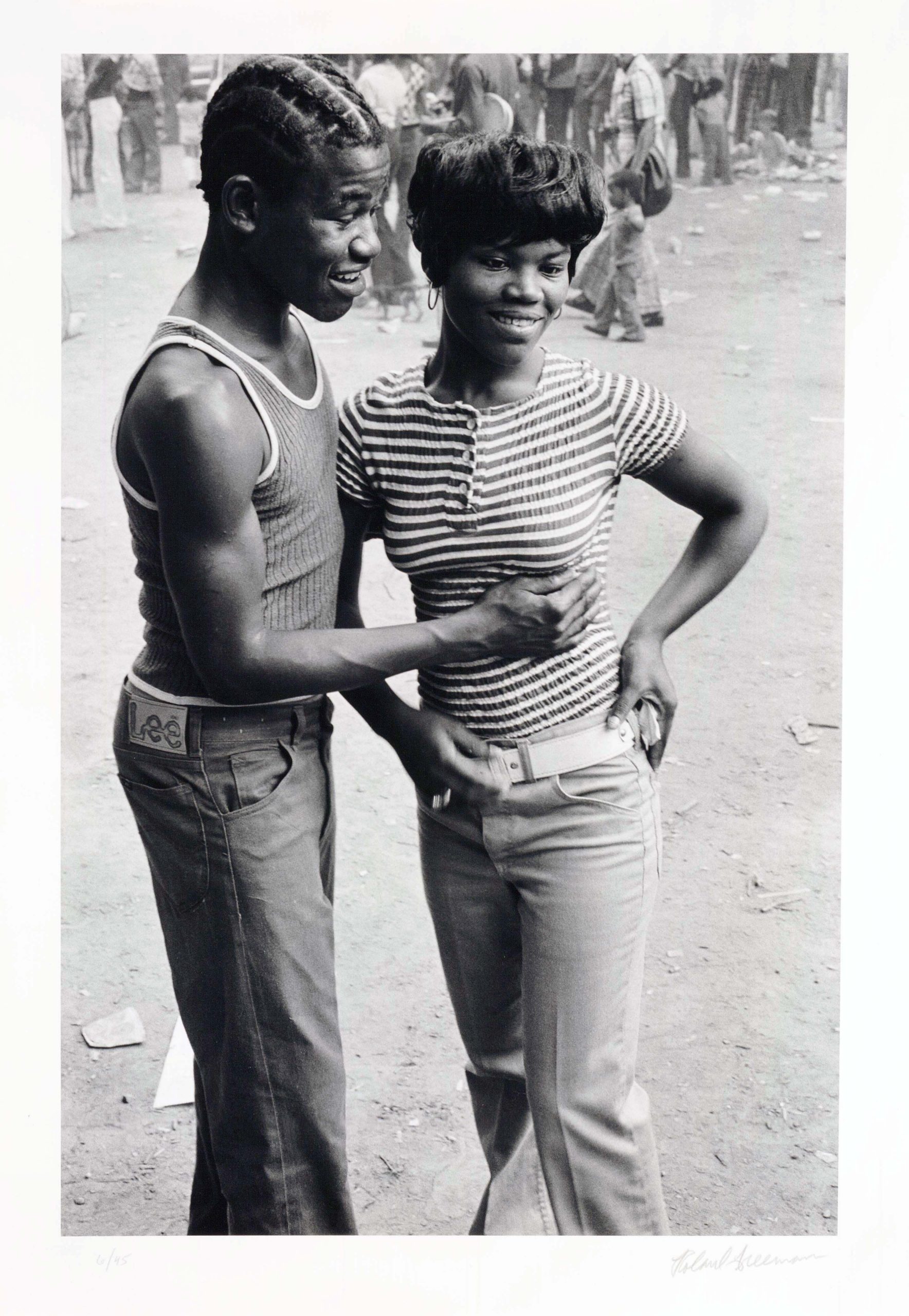
Getting Acquainted, Sunday Afternoon in Druid Hill Park, Baltimore, MD, 1973
After moving to Washington D.C., Freeman began walking the streets with his camera. A local man who used to work in a photography store took Freeman under his wing and taught him how to properly photograph people on film.
“He gave me a book called The Sweet Fly Paper of Life by Roy DeCarava and Langston Hughes. The stuff he shot in New York tenements celebrating on a Saturday night – they were poor but they had love,” Freeman says. “Those pictures let me know it was possible to take the pictures I wanted and get published.”
Freeman started out making pictures on his day off as a “way to keep my sanity.” Although he wasn’t formally trained, Freeman studied the work of Gordon Parks, James Agee and Walker Evans’ Let Us Now Praise Famous Men, Edward Steichen’s Family of Man, and became close with Magnum Photos member Burk Uzzle.
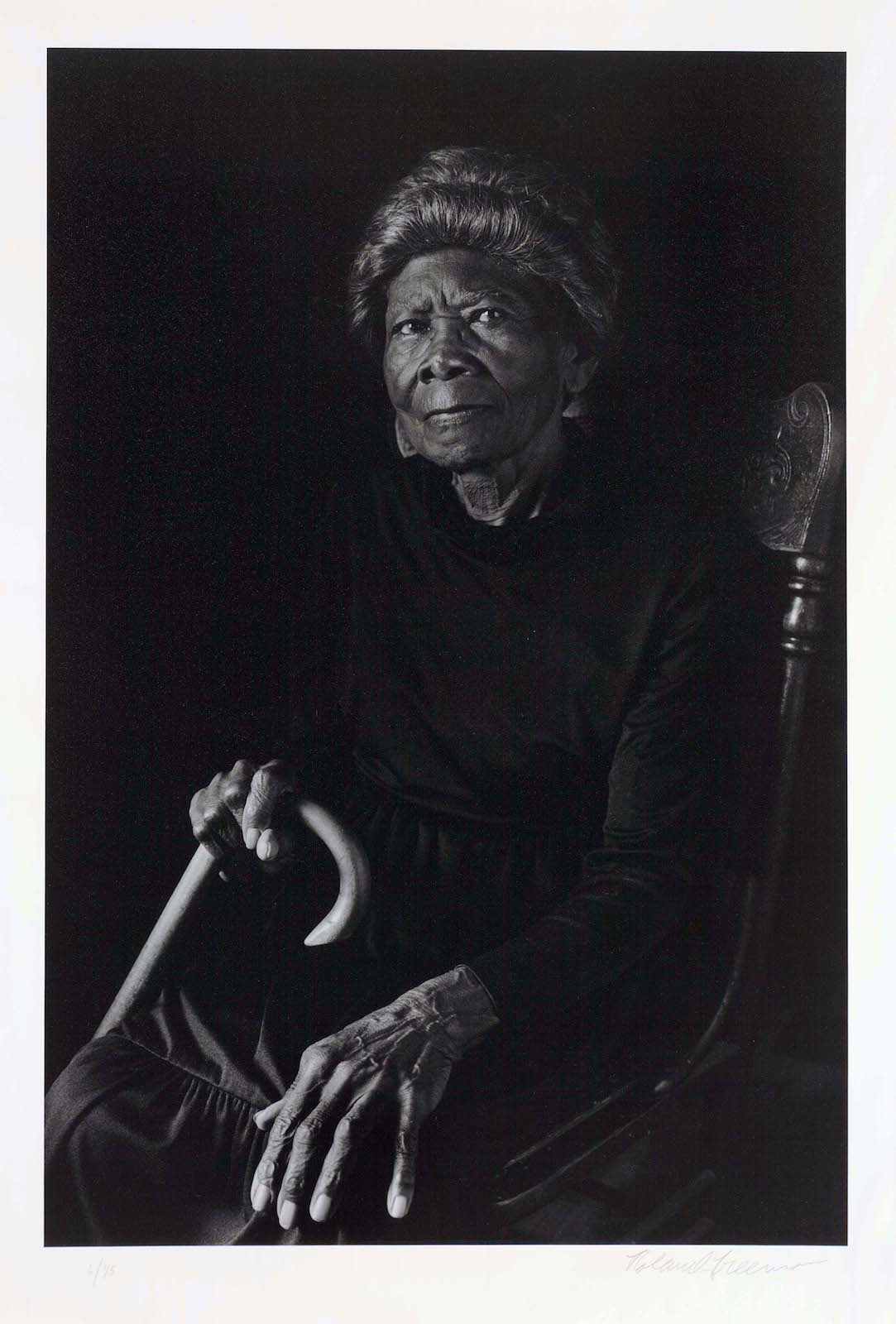
Mrs. Viola Allen, Africatown, AL, 1985
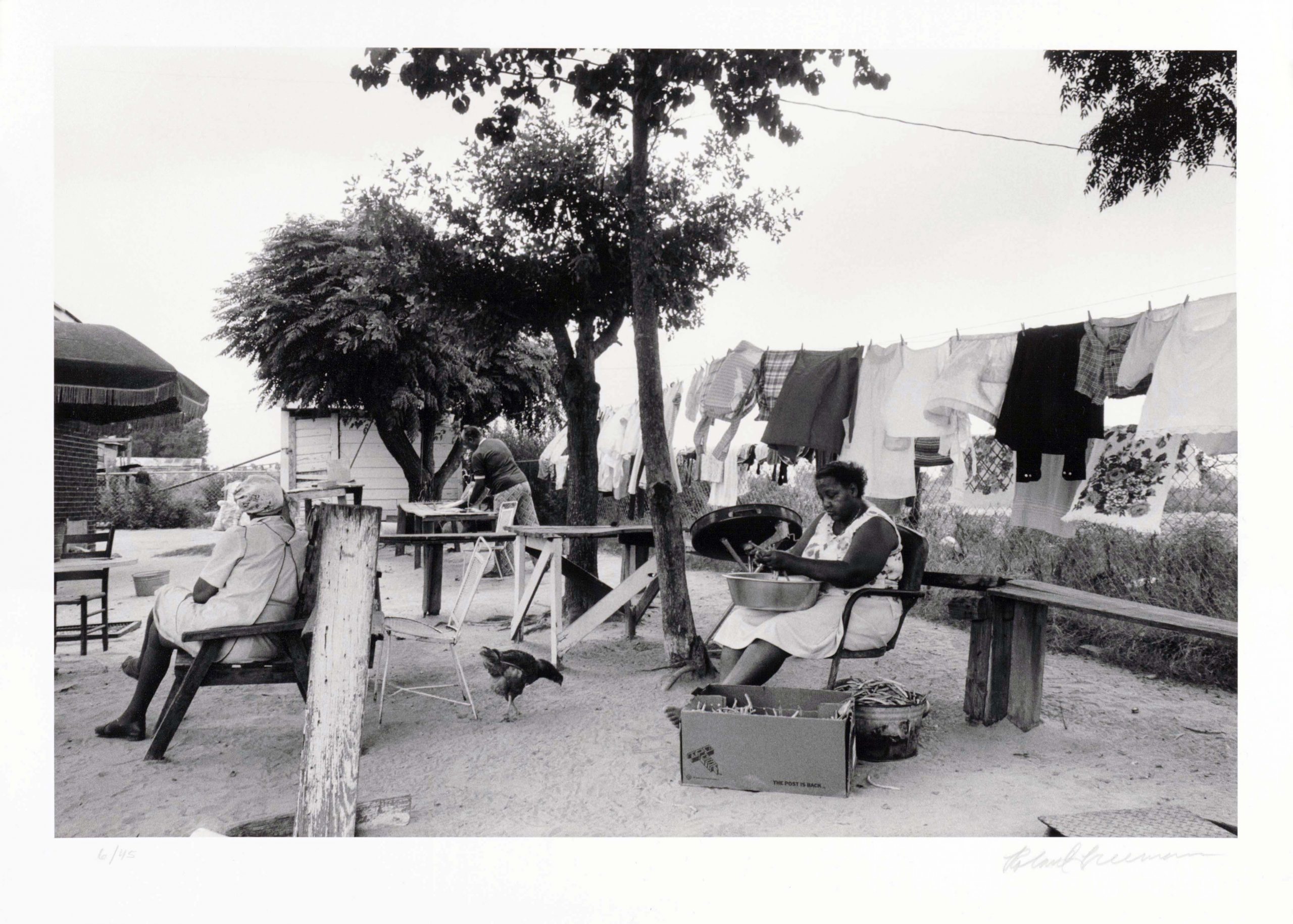
Ruby Quick, Wilford Streeter, and Claudie Mae Bright. In the Sand Hills, Near Bennettsville, SC 1979
“Burk told me, ‘Write down 10 things that scared the hell out of you and then start going to face them. That’ll help you become a better photojournalist,’” Freeman recalls. “I had Mississippi on the top of that list. I knew whose family died and they didn’t want to go back to the state to bury them.”
In 1968, Freeman went to Marks, Mississippi, to photograph the Mule Train – a group of some 150 people in 20 mule-drawn wagons heading to Washington D.C., to kick of the Poor People’s Campaign on May 13.
“I was on the train trying to figure out what the hell I’m doing. This was the first major documentary project I tried to do. We were going through the backwoods of Mississippi. Crazy people were shooting at the wagons at night, coming down the road and blowing the horn to scare the mules and run us off the road,” Freeman says.
“It was heart wrenching to be on the frontline. I was always scared. The last thing you want to do is wind up in the Mississippi jail. Every day I was the praying. But there was any place else that I wanted to be except right there.”
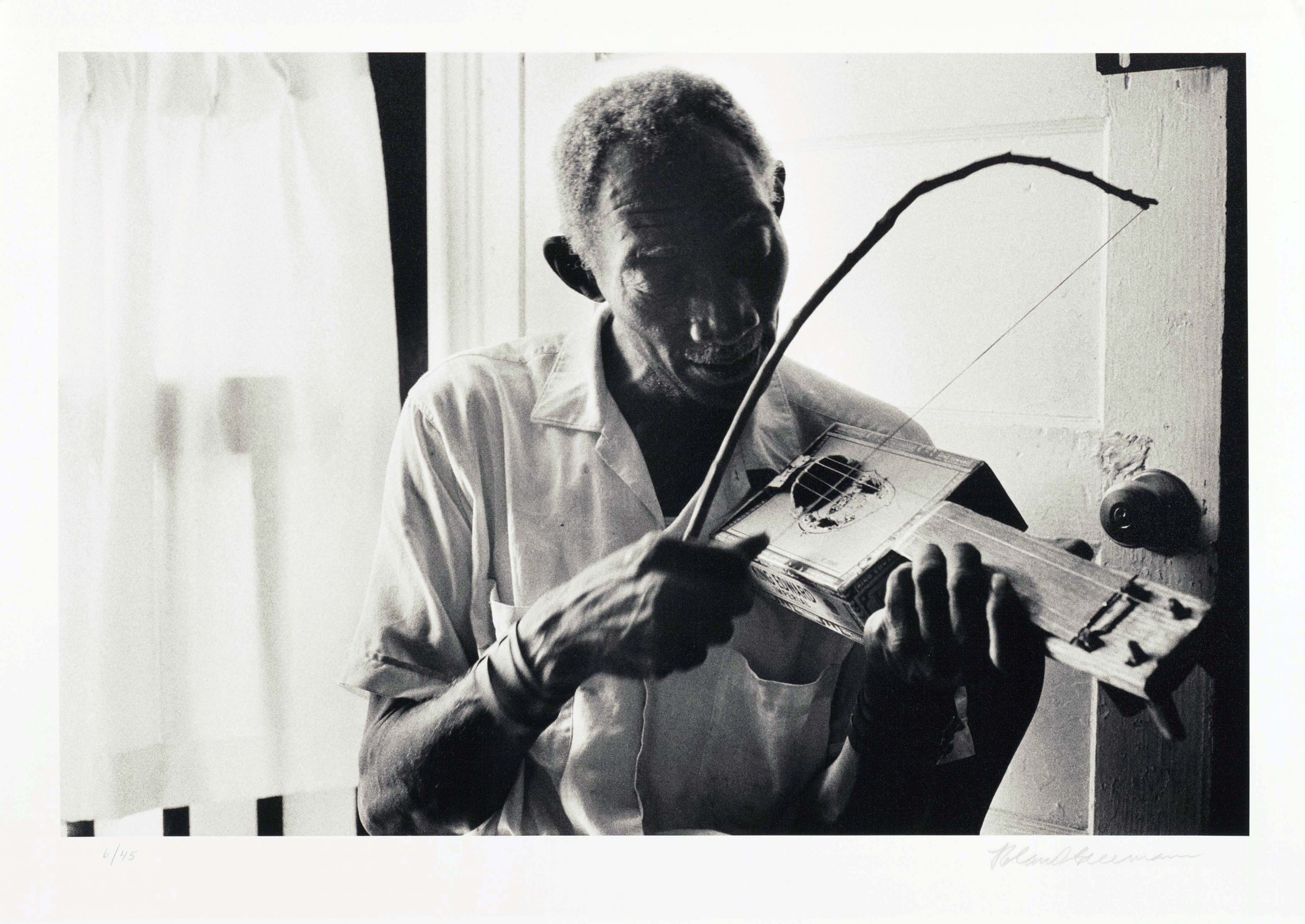
Cigar Box Fiddler Scott Dunbar, Mississippi, 1975
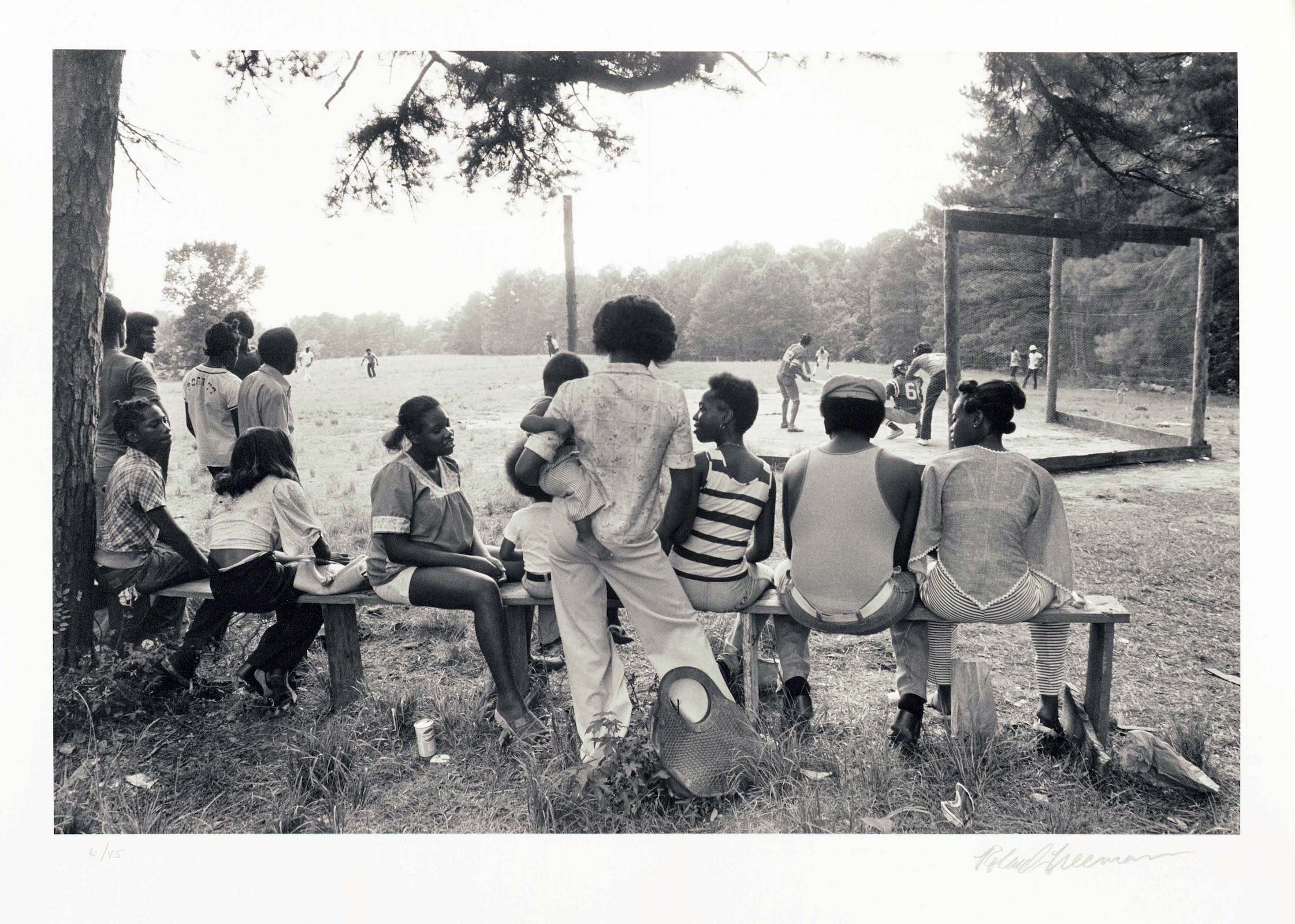
Sunday Baseball Game, Near Buffalo, MS, 1976
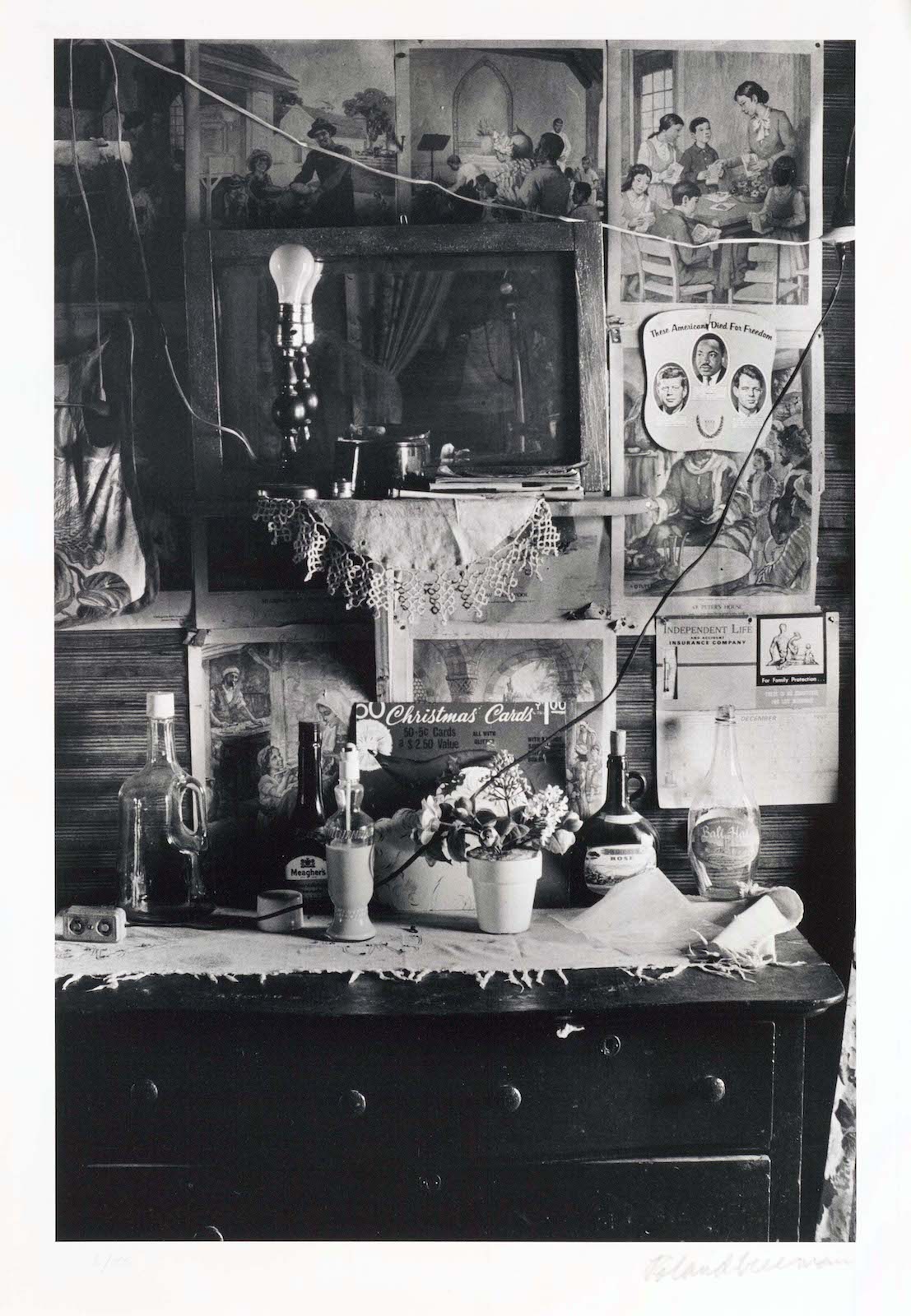
Hallway of Polk Home, Americus, GA, 1971
Roland L. Freeman: Portfolio is on view at the Ogden Museum of Southern Art in New Orleans through September 5, 2021.
Follow Miss Rosen on Twitter.
Enjoyed this article? Like Huck on Facebook or follow us on Twitter.
You might like

“Humanity’s big threat is our disconnect from nature”: Craig Richards and Chris Levine in conversation
Lighting up — With Houghton Festival collaborating with artist Chris Levine in its most recent edition, we sat down with the light artist and the festival’s creative director Craig Richards to chat about their new installations, and the role of art and music in tumultuous times.
Written by: Isaac Muk

Three heart wrenching poems from Gaza
Writings that narrate — With Gaza’s population facing starvation, we are handing over our website to Yahya Alhamarna, a displaced poet and student in Gaza, who shares some of his recent poetry, and explains why writing is so important to him.
Written by: Yahya Alhamarna

An insider’s view of California’s outdoor cruising spots
Outside Sex — Daniel Case’s new photobook explores the public gay sex scene, through a voyeuristic lens, often hidden just below plain sight.
Written by: Miss Rosen

Daido Moriyama’s first four photobooks to be published in English for the first time
Quartet — A new anthology collates Japan, A Photo Theater, A Hunter, Farewell Photography and Light and Shadow, alongside journal entries and memoranda.
Written by: Isaac Muk

Meet Lady Pink, the ‘First Lady’ of graffiti
Miss Subway NYC — As a leading writer and artist in a man’s world, Sandra Fabara has long been a trailblazer for girls in underground art. Now, her new show touches on her legacy, while looking to the future.
Written by: Isaac Muk

Will internet age verification actually work?
VPN Summer — With the Online Safety Act coming into force over the weekend, the UK woke up to find pornography, but also any content deemed “harmful” hidden behind an ID wall. But young people are far too tech savvy to be deterred, explains newsletter columnist Emma Garland, who also warns of the dangers of mass data harvesting.
Written by: Emma Garland

